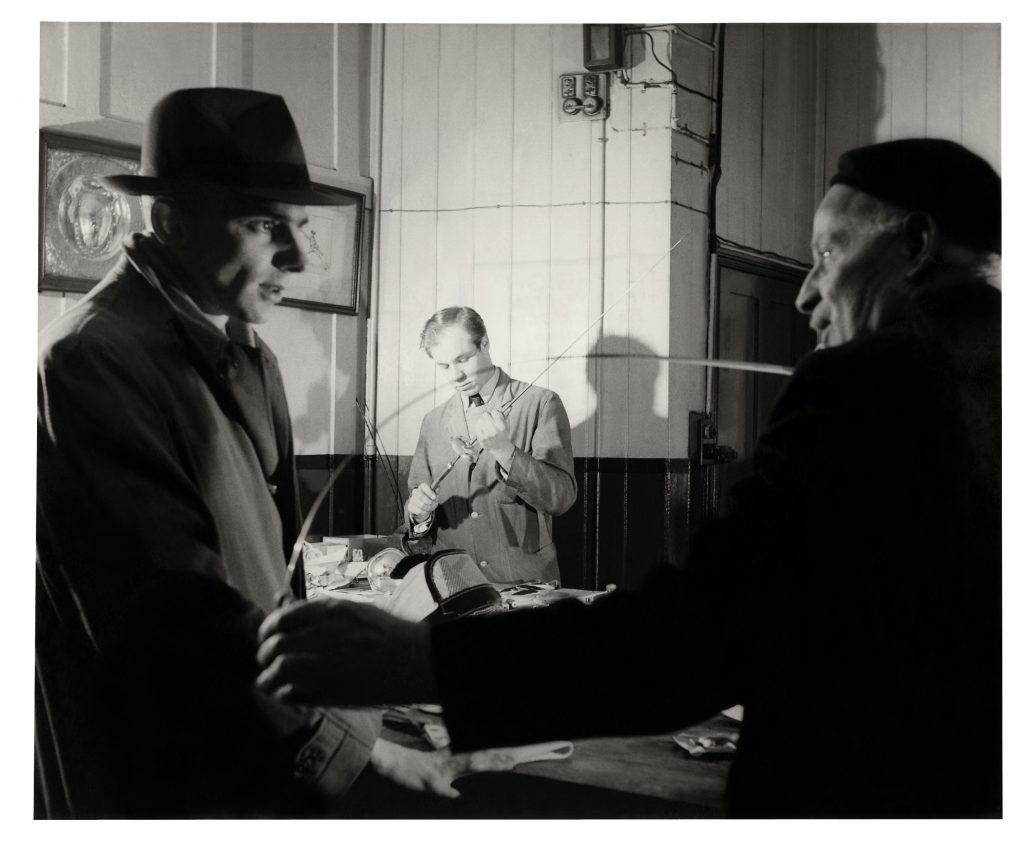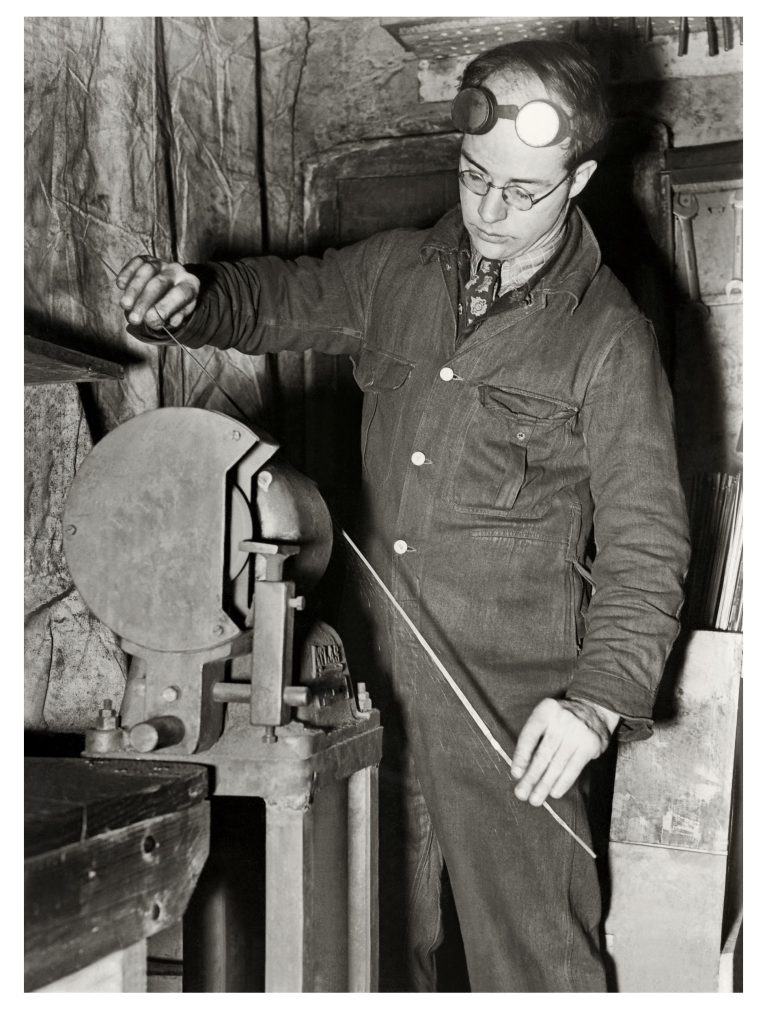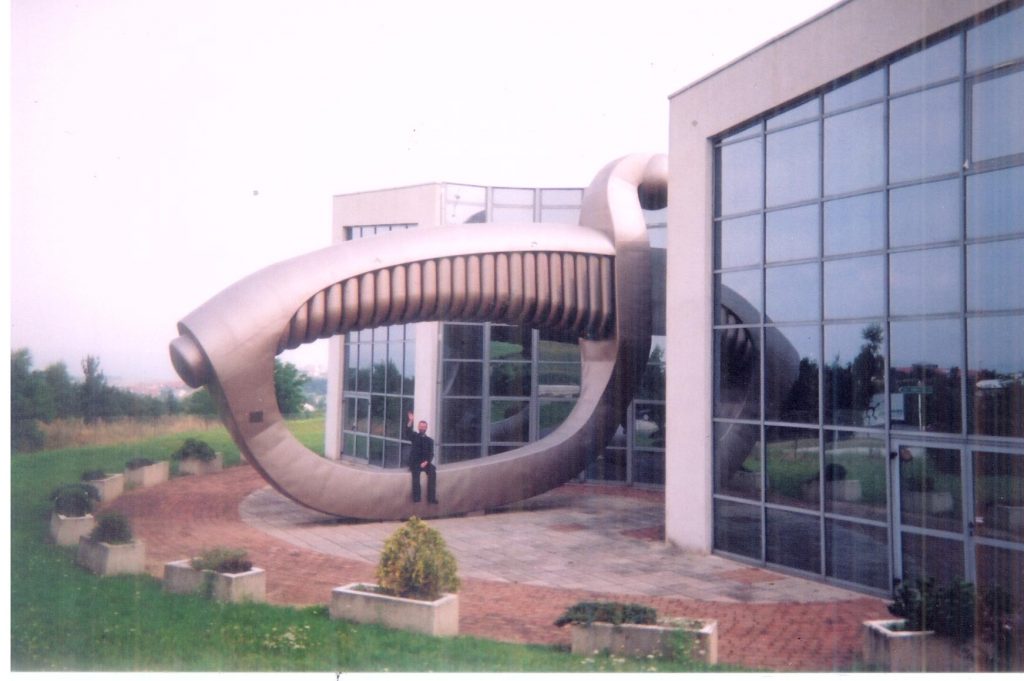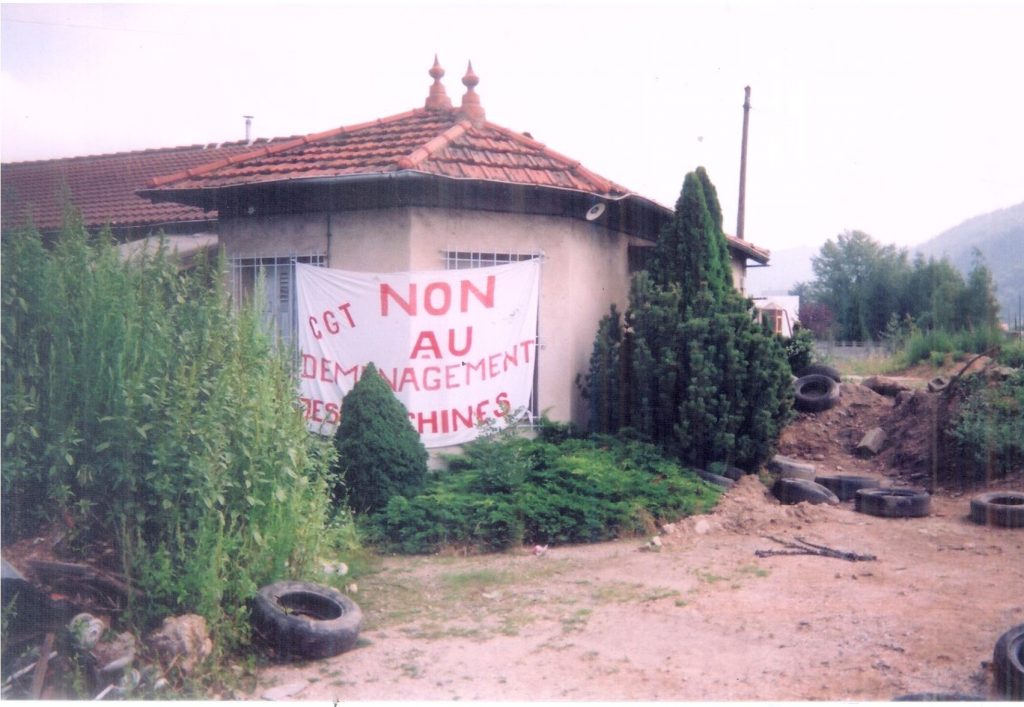We use cookies
Using our site means you agree to the use of cookies and similar technologies. Read about our policy and how to disable them here
 The history of Leon Paul blades[/caption]
The first time we started making blades was before the Second World War when my grandfather Leon Paul went into business with Wilkinson Sword. When the partnership broke up for reasons that are lost in the mists of time Wilkinson made the crazy decision to move into stainless steel razors while my grandfather kept it real in the fencing industry!
The second time, was due to little local difficulty buying blades from Europe (the second world war) so we were forced to start again. Leon sourced a small drop hammer forge which was located in a rented basement in Neal's yard in central London.
The finishing, grinding and heat treatment was done in the basement of our shop in Momouth Street. The top floor of which was occupied by two refugee families who had fled the war in Europe.
[caption id="attachment_352" align="alignleft" width="767"]
The history of Leon Paul blades[/caption]
The first time we started making blades was before the Second World War when my grandfather Leon Paul went into business with Wilkinson Sword. When the partnership broke up for reasons that are lost in the mists of time Wilkinson made the crazy decision to move into stainless steel razors while my grandfather kept it real in the fencing industry!
The second time, was due to little local difficulty buying blades from Europe (the second world war) so we were forced to start again. Leon sourced a small drop hammer forge which was located in a rented basement in Neal's yard in central London.
The finishing, grinding and heat treatment was done in the basement of our shop in Momouth Street. The top floor of which was occupied by two refugee families who had fled the war in Europe.
[caption id="attachment_352" align="alignleft" width="767"] Rene Paul grinding a blade in a basement in Central London circa 1947[/caption]
Initially quenching oil was difficult to find because of the war but eventually a source of whale oil was found. Use of whale oil for a manufacturing process is pretty shocking in the context of what we know now but at the time whales were a legitimate and common source of oil more usually used for fuel. It was apparently great for quenching red hot swords but unfortunately created huge amounts of smoke. The smoke was vented out by opening the pavement level metal shutters on the street above. The ensuing plume of brown smoke would cover the top floor washing, which was always hanging out of the windows, with black soot. The resulting stand off with the residents of the top floor meant that every time the smoke was let out chamber pots were emptied into the open hole from high above!
The third time was just after the Second World War finished when my father Rene Paul went to work with a metal forging firm called Beadmore in a workshop off Tottenham court road producing a small quantity of hand forged blades.
By 1950 supplies of blades from Europe had resumed with blades available from France from Begon, Hostain and Blaise Frere Suzie. In Italy from Polottie and Scaroni and from behind the iron curtain, Hungarian and Ukranian blades. Easy availability of imported blades meant that we stopped our manufacturing operation.
By 1970 the situation had changed with the Italian firms closing, blades from Hungary drying up and blades from Russia being very difficult to obtain and of poor quality. Hostine in France had invested in a semi automated forging machine and had become one of the most sought after blades in the world. When buying this machine Hostine signed a exclusive world supply deal with Prieur. Suddenly Leon Paul were having to buy our top of the range blades from one of our largest competitors which was not great for business.
What happened next at Hostine was a parable for our times. After the deal with Prieur, Hostine was overwhelmed with requests by former clients to supply them directly. However the two daughters of Hostine had married and the new sons in law were running the commercial side of the business. Seeing the possibility of much greater production from the new forge they hatched a plan of questionable morality to circumvent the contract with Prieur. They created a new firm France Lame which they owned. They received significant help from the French state and built a rather wonderful factory which was literally being run through with a two story high mock sword!
[caption id="attachment_354" align="aligncenter" width="840"]
Rene Paul grinding a blade in a basement in Central London circa 1947[/caption]
Initially quenching oil was difficult to find because of the war but eventually a source of whale oil was found. Use of whale oil for a manufacturing process is pretty shocking in the context of what we know now but at the time whales were a legitimate and common source of oil more usually used for fuel. It was apparently great for quenching red hot swords but unfortunately created huge amounts of smoke. The smoke was vented out by opening the pavement level metal shutters on the street above. The ensuing plume of brown smoke would cover the top floor washing, which was always hanging out of the windows, with black soot. The resulting stand off with the residents of the top floor meant that every time the smoke was let out chamber pots were emptied into the open hole from high above!
The third time was just after the Second World War finished when my father Rene Paul went to work with a metal forging firm called Beadmore in a workshop off Tottenham court road producing a small quantity of hand forged blades.
By 1950 supplies of blades from Europe had resumed with blades available from France from Begon, Hostain and Blaise Frere Suzie. In Italy from Polottie and Scaroni and from behind the iron curtain, Hungarian and Ukranian blades. Easy availability of imported blades meant that we stopped our manufacturing operation.
By 1970 the situation had changed with the Italian firms closing, blades from Hungary drying up and blades from Russia being very difficult to obtain and of poor quality. Hostine in France had invested in a semi automated forging machine and had become one of the most sought after blades in the world. When buying this machine Hostine signed a exclusive world supply deal with Prieur. Suddenly Leon Paul were having to buy our top of the range blades from one of our largest competitors which was not great for business.
What happened next at Hostine was a parable for our times. After the deal with Prieur, Hostine was overwhelmed with requests by former clients to supply them directly. However the two daughters of Hostine had married and the new sons in law were running the commercial side of the business. Seeing the possibility of much greater production from the new forge they hatched a plan of questionable morality to circumvent the contract with Prieur. They created a new firm France Lame which they owned. They received significant help from the French state and built a rather wonderful factory which was literally being run through with a two story high mock sword!
[caption id="attachment_354" align="aligncenter" width="840"] France Lame factory circa 2000 featuring the handsome forge manager Pete (AKA spanner)[/caption]
Hostine sold the machinery to France lame leaving them with no production capacity and the contract was thus broken. Unfortunately over the following years the sons in law made some very poor business decisions and eventually went broke. In the process of winding up they tried to move the machinery out of the factory which was prevented by a workers sit in.
[caption id="attachment_355" align="aligncenter" width="840"]
France Lame factory circa 2000 featuring the handsome forge manager Pete (AKA spanner)[/caption]
Hostine sold the machinery to France lame leaving them with no production capacity and the contract was thus broken. Unfortunately over the following years the sons in law made some very poor business decisions and eventually went broke. In the process of winding up they tried to move the machinery out of the factory which was prevented by a workers sit in.
[caption id="attachment_355" align="aligncenter" width="840"] A traditional French strike[/caption]
When the assets were finally sold Prieur had the last laugh by buying up the firm. Unfortunately it is rumoured the old man Hostine had a breakdown in the process of trying to get his beloved company back.
The final effort to make our own blades was thus undertaken but that is a story for another time...
A traditional French strike[/caption]
When the assets were finally sold Prieur had the last laugh by buying up the firm. Unfortunately it is rumoured the old man Hostine had a breakdown in the process of trying to get his beloved company back.
The final effort to make our own blades was thus undertaken but that is a story for another time...

